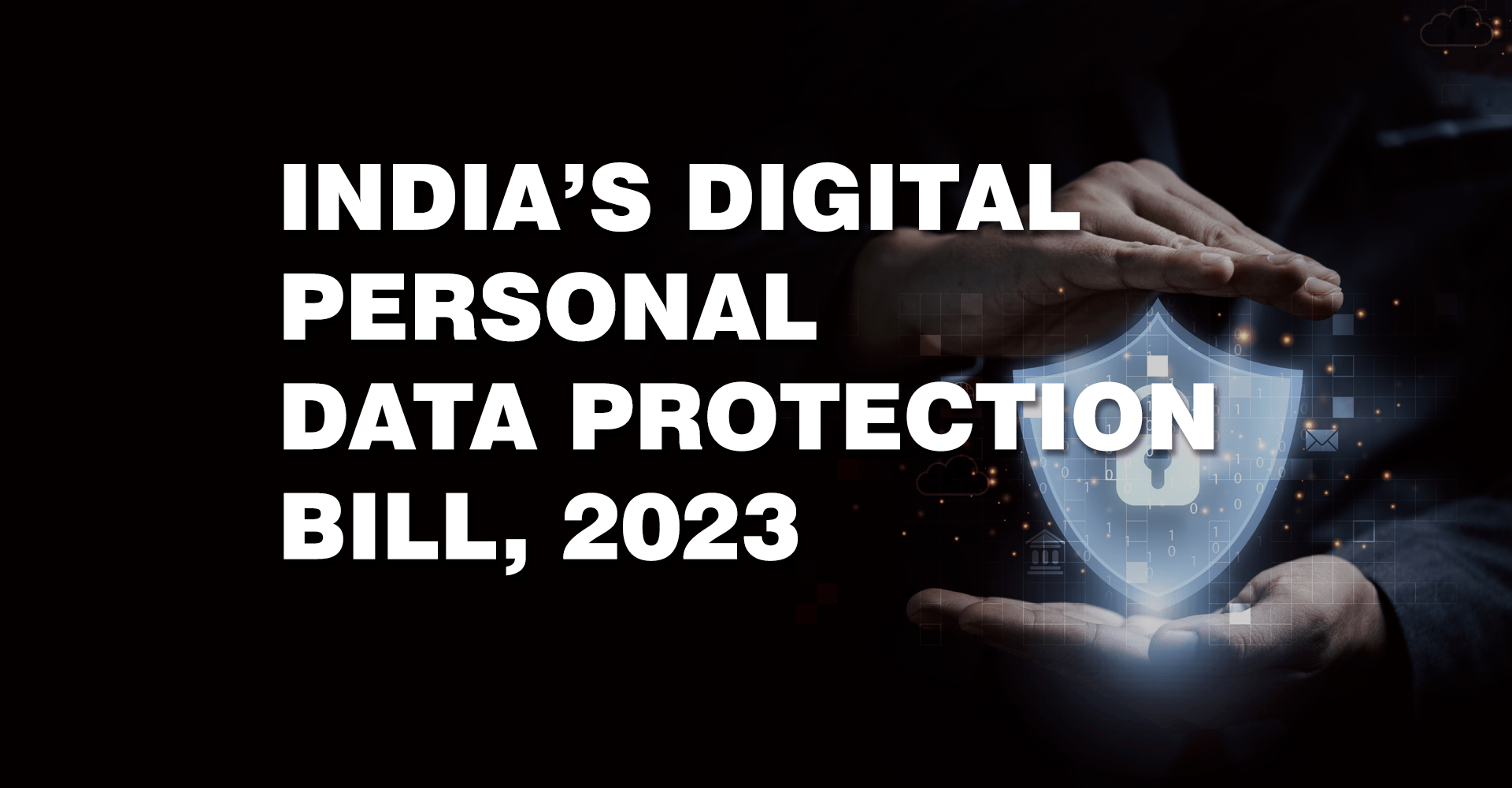In recent years, India’s evolution in the digital realm has been both groundbreaking and transformative. The passage of “The Digital Personal Data Protection Bill, 2023” by the President of India marks a pivotal moment for data protection in the nation. The Bill seeks to encapsulate the myriad aspects of this transformation, offering a protective shield to the nation’s vast demographic against potential data pitfalls. Here, I look extensively into the various dimensions this Bill touches upon in the Indian context.
Key Factors Impacting the Digital Personal Data Protection Bill in India:
In the digital age, personal data has emerged as both an asset and a liability. As India strides in its digital journey, becoming one of the world’s leading technology hubs, the call for strong data protection has never been more pressing. Let’s look at the key elements that have greatly impacted the formation and intricacies of the Bill in India.
- Digital Evolution and Proliferation: As India witnesses an exponential surge in its digital user base, there’s a pressing need to ensure that the rights of these new users are safeguarded. The rise in digital payment platforms, e-commerce, and social media usage underscored this.
- High-Profile Data Breaches: Cases of significant data breaches in Indian companies brought the topic of data protection to the forefront. Public outcry and concerns over such breaches highlighted the urgency.
- Global Data Protection Trends: With regulations like the EU’s GDPR setting global standards, there was a pressing need for India to align its policies with global best practices to facilitate international trade and technology exchanges.
- Startup and Tech Boom: India’s burgeoning startup ecosystem, particularly in the tech sector, required a clear regulatory framework to ensure ethical data practices.
- Data Localization: There has been a strong push for data localization, ensuring that Indian users’ data stays within the country’s borders.
- Consumer Activism and Awareness: With digital literacy rising, the Indian public has become more vocal about their data rights, influencing policymakers to prioritize personal data protection.
- Technological Advancements: The onset of technologies like AI and ML, which rely heavily on data, required a framework to ensure they’re used ethically and responsibly.
- Economic Considerations: The aspiration to become a global digital hub and attract international tech investments made it vital for India to showcase a robust data protection framework.
- Geopolitical Considerations: In an era where data is often termed the ‘new oil’, geopolitical considerations, especially around cybersecurity and potential data-driven influences on domestic matters, played a role.
- Judicial Pronouncements: The landmark judgment by the Supreme Court of India, which declared privacy as a fundamental right, set the stage for more stringent data protection measures.
While the Bill aims to address individual data protection needs, it is the culmination of various national priorities, global trends, and domestic incidents. It reflects India’s aspiration to meld growth with governance in the digital era. Moving further, let’s explore the primary sections of the Bill and my thoughts on how they might shape our digital future.
Effective Date and Applicability:
Effective January 1, 2024, the Bill will apply universally across India, encompassing both public and private entities that process personal data. However, its implementation is not without challenges, given the nation’s diverse digital landscape and varying levels of digital literacy.
My Opinion: The Bill’s introduction with a definitive effective date offers clarity, allowing businesses ample time to prepare. Its universal applicability promises a standardized framework, ensuring consistent data protection. However, this could pose challenges. Smaller entities, especially those with limited resources, might struggle to adapt within the given timeline and may find it hard to get ready on time.
Consent Process:
One of the Bill’s foundations is the revamped consent process. No longer can data fiduciaries assume implied consent. People need to know what they’re saying yes to. The consent must be explicit, informed, and freely given. However, striking a balance between usability and rigorous consent processes remains challenging.
My Opinion: By revamping the consent process, the Bill underscores the value of individual autonomy in the digital realm. While fostering a culture of informed consent, this approach might inadvertently complicate user interactions. There’s a genuine risk that lengthier consent processes might deter users, and despite efforts, not everyone might grasp the complexities of the data they’re sharing.
Applicability to Children:
Children, often the most vulnerable online users, get special attention in this Bill. Data fiduciaries must employ stringent measures to verify age and obtain guardian consent before processing children’s data.
My Opinion: Recognizing children’s digital safety is commendable, acknowledging their online vulnerability. It’s crucial to keep kids safe online. But, making sure we’re really talking to a guardian and not someone else might be hard. Ensuring genuine compliance without hampering user experience is a tightrope walk.
Protection, Integrity, and Deletion of Personal Data:
Data fiduciaries are tasked with ensuring the integrity and protection of personal data. They must provide mechanisms for data principals to request data deletion, giving individuals greater control over their digital footprint.
My Opinion: Empowering users to control their digital footprint fosters trust. However, from an operational perspective, entities might grapple with the mechanics of facilitating on-demand data deletion. Given the massive scale of data inflow, upholding data integrity will demand sophisticated technological solutions.
Personal Data Breach:
In case of a breach, data fiduciaries must promptly notify the Data Protection Authority. Transparency during such events safeguards the trust of data principals.
My Opinion: Transparency during data breaches can indeed reinforce public trust. Being open about mistakes can build trust. But companies might be scared of looking bad. Defining what qualifies as a ‘breach’ event might also pose challenges.
Data Protection Officer (DPO):
Every entity processing personal data must appoint a DPO responsible for ensuring compliance with the Bill. Their role will be pivotal in bridging the gap between data processors and the public. Companies need someone to make sure they follow the data rules.
My Opinion: The mandate for a dedicated DPO is a forward-thinking move, ensuring an unwavering focus on data protection. For large organizations, this is a logical step and having an expert is smart. But small companies might find it hard to afford one.
Data Localization and Transfer:
A significant aspect of the Bill is its stance on data localization. Critical personal data must be stored within India, though specific data can be transferred outside, given stringent conditions. This approach ensures that Indian citizens’ data remains mainly within the nation’s jurisdiction while accommodating global business needs.
My Opinion: Data localization safeguards national interests but is a double-edged sword. International businesses might perceive it as a roadblock, facing higher operational costs and complexities. On the other hand, it could boost India’s domestic data storage industry, fostering self-reliance.
Exemptions:
Certain government agencies might be exempted for national security reasons or legal proceedings. While these exemptions are practical, they also underscore the need for checks and balances to prevent misuse.
My Opinion: While practical, exemptions come with trust implications. I get why some exceptions are needed, but we have to be careful this doesn’t get misused. Striking the balance between national security and individual data rights will be pivotal in retaining public confidence.
Penalties:
Non-compliance comes with stiff penalties, emphasizing the government’s commitment to strict adherence to the Bill. The penalties for data breaches can vary depending on the jurisdiction, but they can be severe. The Bill introduces substantial penalties for those found violating its provisions, ranging from a minimum of Rs 50 crore to a maximum of Rs 250 crore.
My Opinion: Robust penalties showcase the government’s commitment to the Bill. But there’s a possible downside. Often operating on slim margins and in uncharted territories, companies might feel strangled. Instead of fostering innovation, stringent penalties might usher in a climate of hesitancy.
The DPDP Bill 2023 is a beacon of India’s commitment to its citizens in an increasingly data-driven age. It’s more than just legislation; it’s a statement of intent, a testament to India’s ambition of moulding a digital future that’s as secure as it is progressive. While “The Digital Personal Data Protection Bill of 2023” encompasses a broad vision for data protection, the on-ground implementation will be crucial. Balancing the pros and cons will require collaboration between businesses, regulators, and the public. What’s your opinion? Do you see this bill as a safeguard or a hurdle? Let’s get the conversation going in the comments below!




